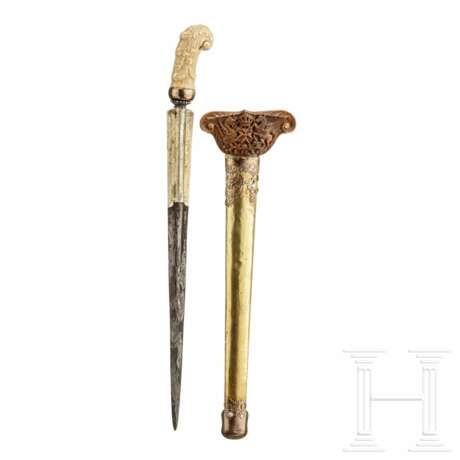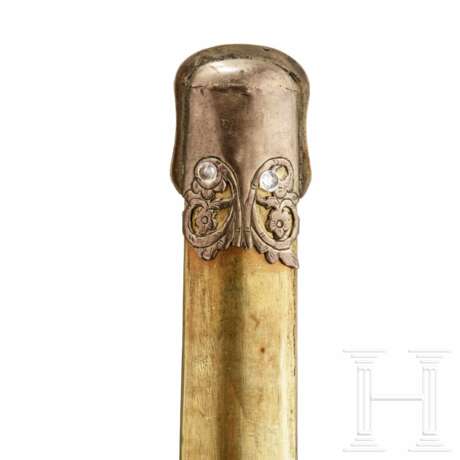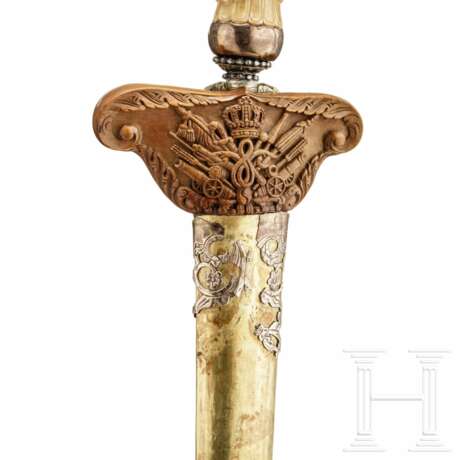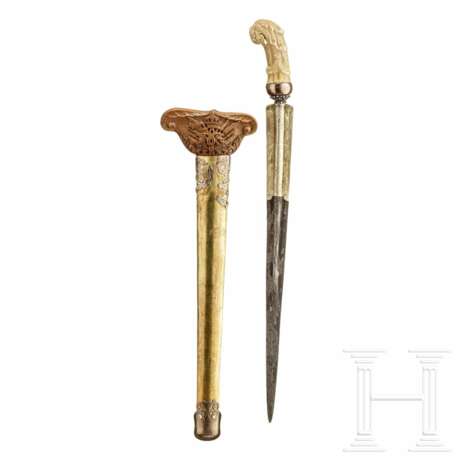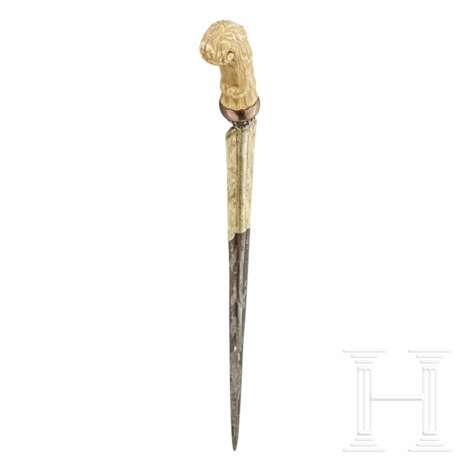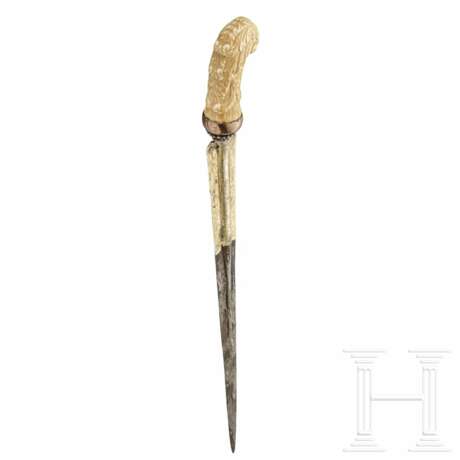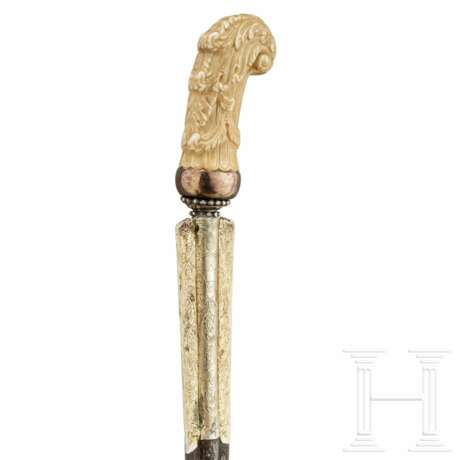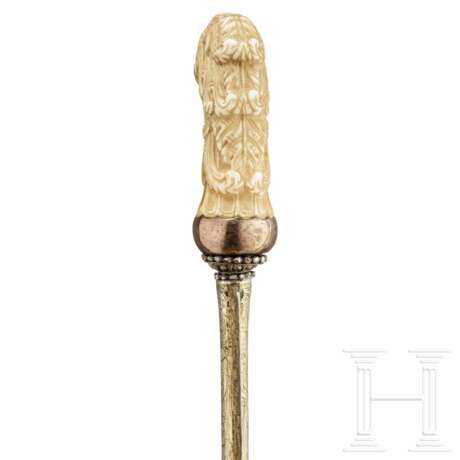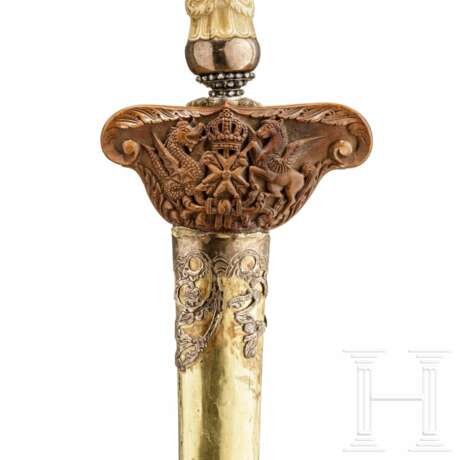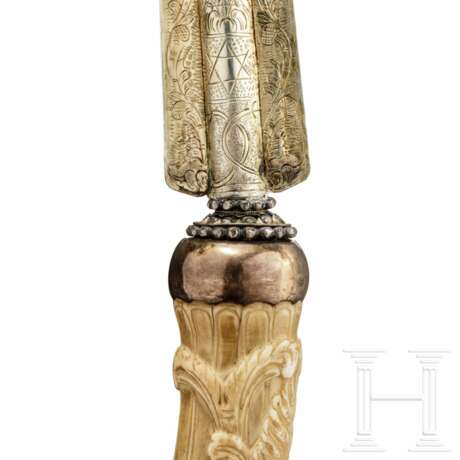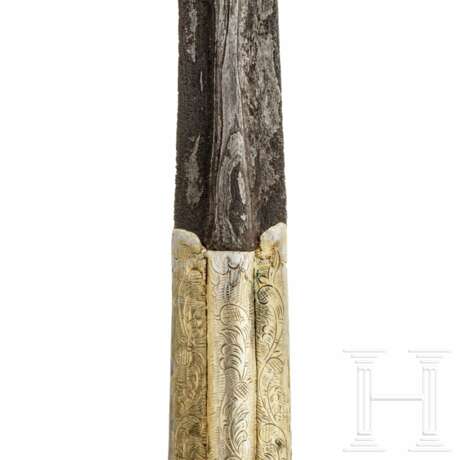ID 657957
Lot 1082 | Goldmontierter Kris eines Sultans von Madura, 19. Jhdt.
Estimate value
€ 3 600
Schlanke zweischneidige Klinge aus Pamor-Damast mit kräftiger, halbrunder Mittelrippe. Im oberen Drittel fein gravierte Zwinge aus vergoldetem Silber. Mit drei Reihen von Diamanten besetztes Selut, Mendak aus niederlötigem Rotgold. Fein floral geschnitzter Griff aus Elfenbein. Scheide mit fein eingeschnitzter hölzerner Wranka mit Ordenskreuz unter Krone, flankiert von Drache und Pegasus. Auf der Gegenseite Trophäenbündel unter Krone. Goldblechummantelte Scheide mit Beschlägen aus niederlötigem Rotgold (Fehlstellen), das Ortblech mit späteren Schmucksteinen besetzt. Länge 43 cm.
Achtung: Ein Export dieses Loses aus der EU ist leider nicht möglich.
Zustand: II - III
A gold-mounted kris of the Sultan of Madura, 19th century
Slender, double-edged blade of pamor Damascus steel with robust, semi-circular midrib. The forte with finely engraved gilt silver ferrule. The selut encrusted with three rows of diamonds, the mendak of soldered red gold. Fine florally carved ivory grip. Scabbard with finely carved wooden wranka with crowned order cross, flanked by a dragon and Pegasus. On the opposite side a crowned trophy bundle. The scabbard covered by sheet gold with mounts of soldered red gold (losses), the chape later encrusted with gemstones. Length 43 cm.
Provenance: According to the consignor from the property of the Sultan of Madura. Purchased by an Italian businessman on Madura in the early 20th century, subsequently owned by the family.
Attention: This lot can only be shipped within the European Union.
Condition: II - III
| Place of origin: | The Indonesian Archipelago |
|---|
| Place of origin: | The Indonesian Archipelago |
|---|
| Address of auction |
Hermann Historica Bretonischer Ring 3 85630 Grasbrunn / München Germany | ||||||||||||||
|---|---|---|---|---|---|---|---|---|---|---|---|---|---|---|---|
| Preview |
| ||||||||||||||
| Phone | +49 (0)89 5472 649 0 | ||||||||||||||
| Fax | +49 (0)89 5472 64999 | ||||||||||||||
| Buyer Premium | 25 % | ||||||||||||||
| Conditions of purchase | Conditions of purchase | ||||||||||||||
| Business hours | Business hours
|
